‘From Hell’ Director Albert Hughes Blasts Alan Moore For His Anti-Hollywood Stance, Says It’s “Bulls**t”
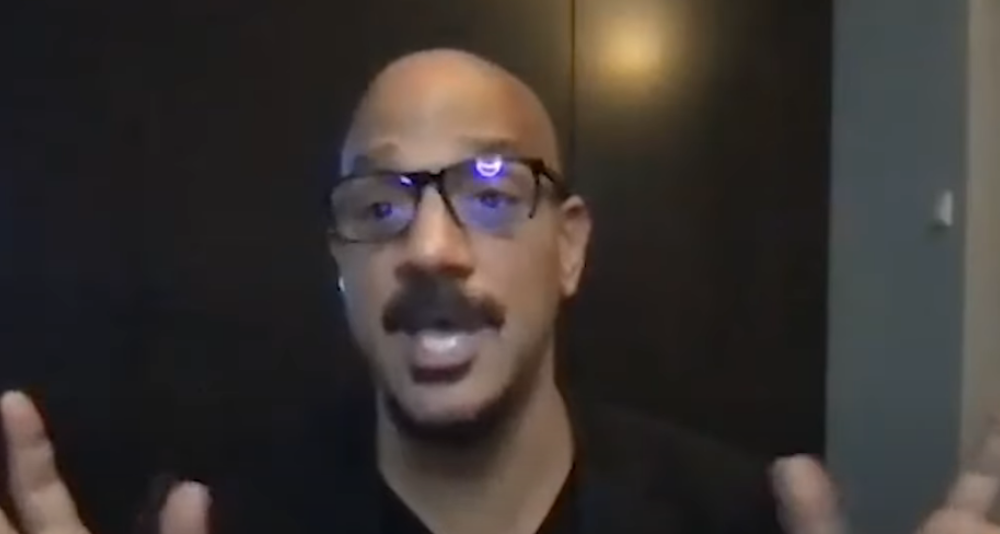
From Hell and The Book of Eli director Albert Hughes put Alan Moore on blast for his anti-Hollywood describing it as “bulls**t.”
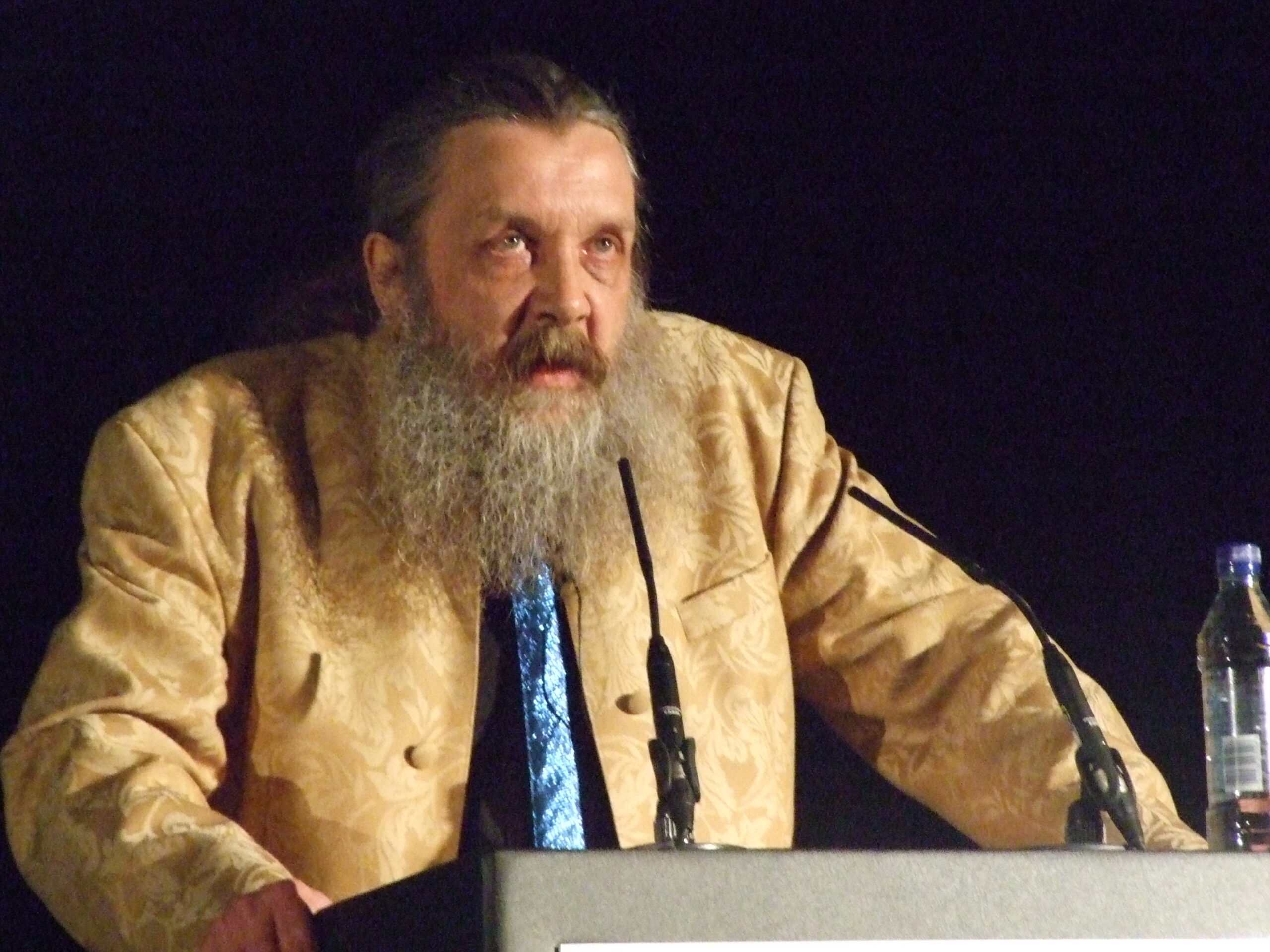
Alan Moore speaking at TAM London 2010. Photo Credit: Gaius Cornelius, CC BY-SA 3.0 <https://creativecommons.org/licenses/by-sa/3.0>, via Wikimedia Commons
Moore has been outspoken in the past regarding various adaptations of his work. As detailed by The Guardian’s Steve Rose, “From [Moore’s] point of view, which he explains in great detail, various executives at DC (which is owned by Time Warner, co-producers of the Watchmen movie) tried to manipulate him and attempted to sneak out Watchmen-related products behind his back, using artist Dave Gibbons as a ‘messenger’, and even exploiting the fact of his best friend’s brother’s terminal illness to exert pressure on him.”
Moore added for good measure, “At that point, I decided I didn’t want anybody at DC to ever contact me again. That was what made me curse this wretched film and everything connected with it.”
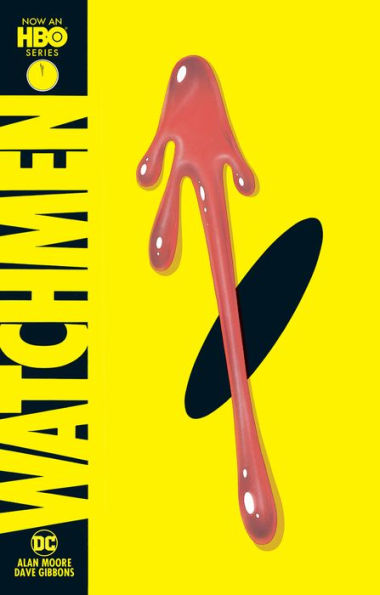
Watchmen (2019), DC
He previously informed MTV that he doesn’t believe any of his comic could be made into films when asked if he could see his pornographic Lost Girls comic adapted into a movie.
Moore said, “I really doubt that any of my comics can be [successfully] made into films, because that’s not how I write them.”
“In comics the reader is in complete control of the experience,” he explained. “They can read it at their own pace, and if there’s a piece of dialogue that seems to echo something a few pages back, they can flip back and check it out, whereas the audience for a film is being dragged through the experience at the speed of 24 frames per second.”
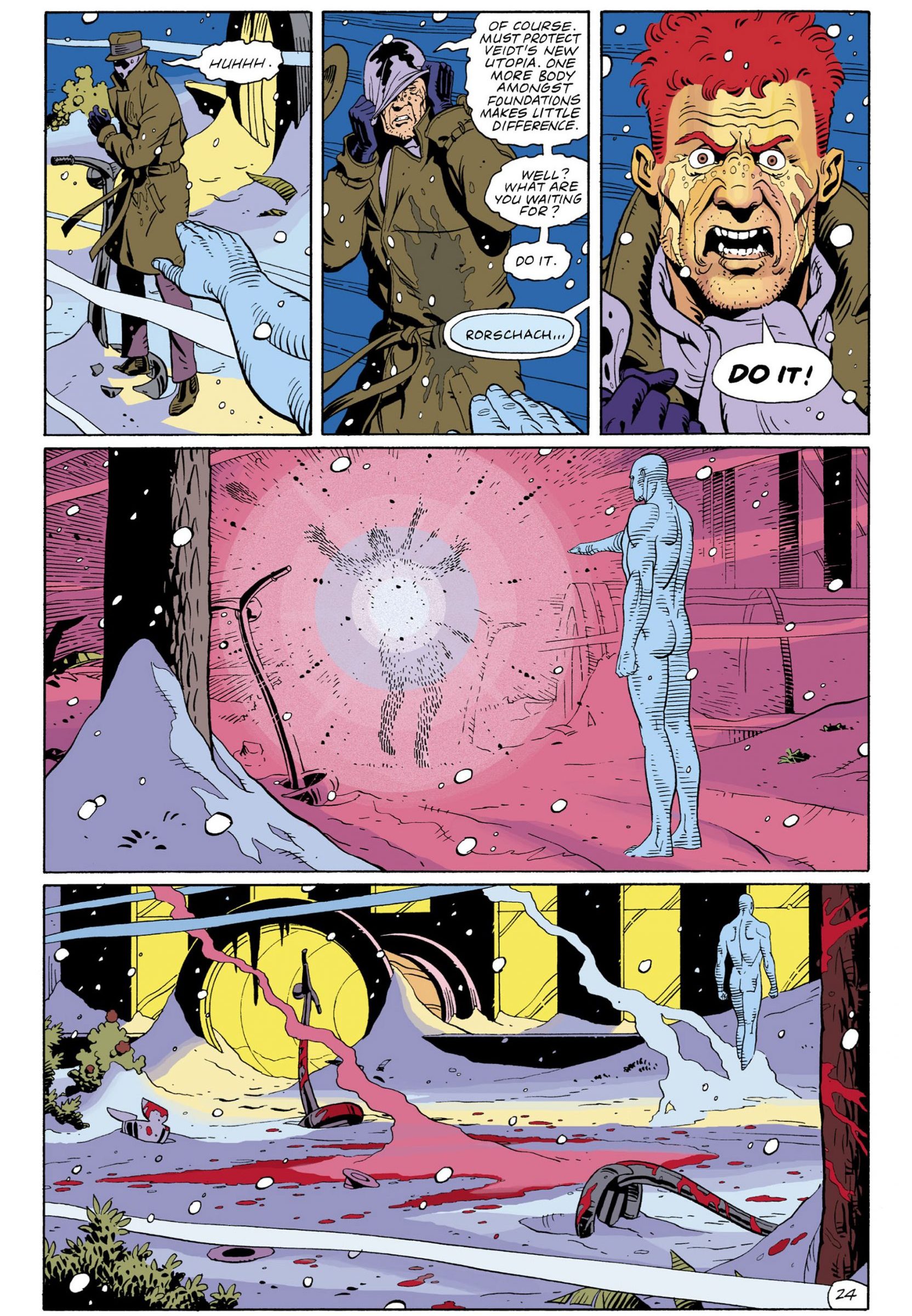
Doctor Manhattan does what must be done in Watchmen Vol. 1 #12 “A Strong and Loving World” (1987), DC Comics. Words by Alan Moore, art by Dave Gibbons and John Higgins.
“So even for a director like Terry Gilliam, who delights in cramming background details into his movies, there’s no way he’d be able to duplicate what Dave Gibbons was able to do in Watchmen,” Moore stated. “We could place almost subliminal details in every panel, and we knew that the reader could take the time to spot everything. There’s no way you could do that in a film.”
Moore elaborated, “I met Terry Gilliam, and he asked me, ‘How would you make a film of Watchmen?” And I said, ‘Don’t.’ I think he eventually came to agree with me that it was a film better unmade. In Hollywood you’re going to have the producers and the backers putting in their … well, I don’t want to dignify them by calling them ideas, but … having their input, shall we say. You’re going to get actors who’ll say they don’t want to say this line or play this character like that.”
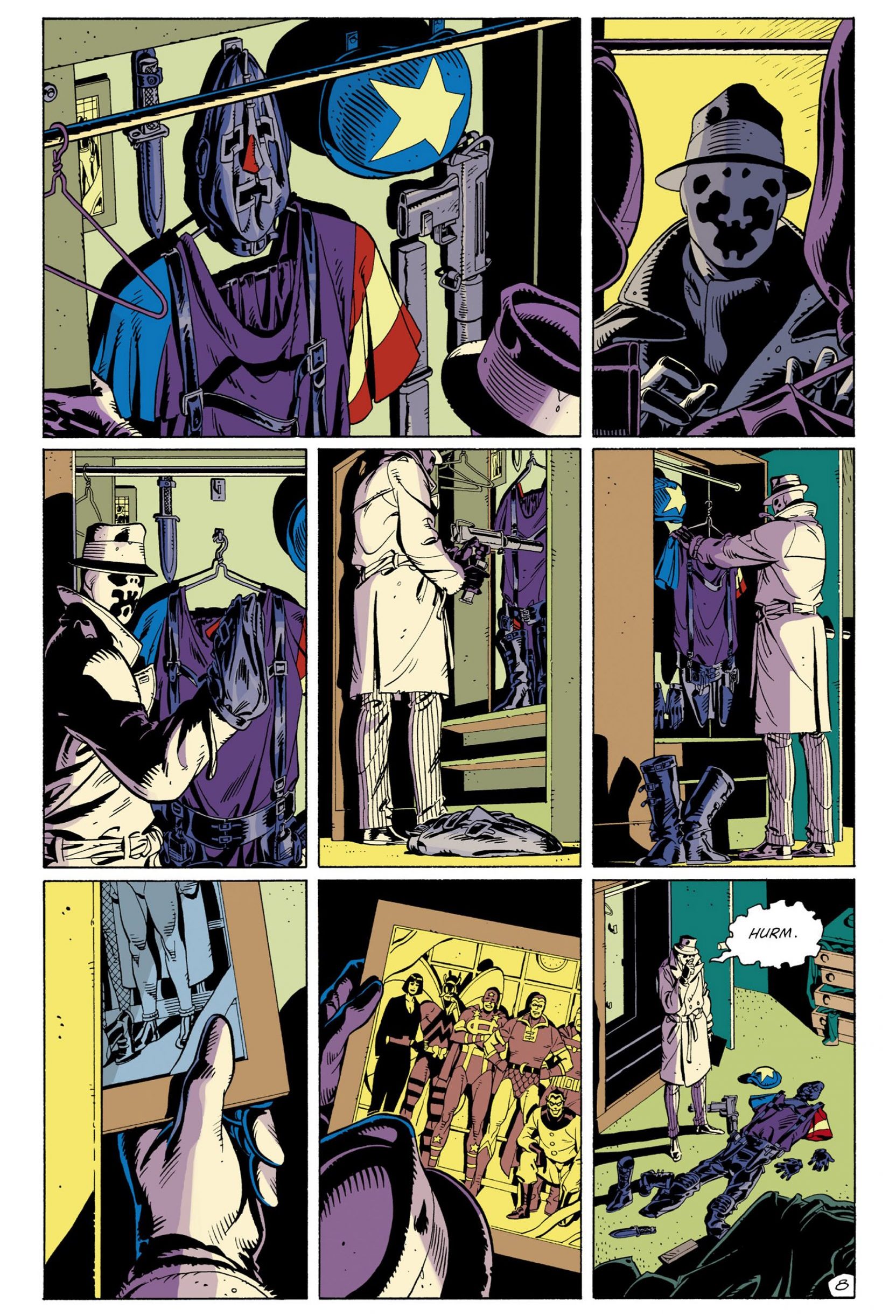
Watchmen #11 “At Midnight, All the Agents” (1987), DC Comics. Words by Alan Moore, art by Dave Gibbons and John Higgins.
The comic book writer then criticized the depiction of Fred Abberline in Hughes’ From Hell adaptation, “I mean the police inspector in From Hell, Fred Abberline, was based on real life: He was an unassuming man in middle age who was not a heavy drinker and who, as far as I know, remained faithful to his wife throughout his entire life. Johnny Depp saw fit to play this character as an absinthe-swilling, opium-den-frequenting dandy with a haircut that, in the Metropolitan Police force in 1888, would have gotten him beaten up by the other officers.”
He also pointed to Sean Connery’s portrayal of Allan Quatermain in The League of Extraordinary Gentlemen, “On the other hand when I have got an opium-addicted character, in Allan Quatermain [in The League of Extraordinary Gentlemen], this was true to the [original] character — he showed a fondness for drugs on several occasions. But Sean Connery didn’t want to play him as a drug-addled individual. So the main part of Quatermain’s character was thrown out the window on the whim of an actor. I don’t have these problems in comics.”
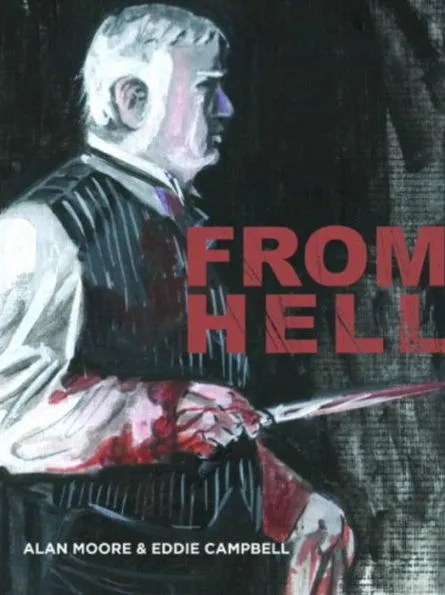
From Hell (2004), IDW Publishing
Moore would then explain why he sold the film rights to his stories in the first place, “My position used to be: If the film is a masterpiece, that has nothing to do with my book. If the film is a disaster, that has nothing to do with my book. They’re two separate entities, and people will understand that. This was very naïve because most people are not bothered with whether it’s adapted from a book or not. And if they do know, they assume it was a faithful adaptation. There’s no need to read the book if you’ve seen the film, right? And how many of the audience who went to see O Brother, Where Art Thou? thought, ‘Hmmm, I’ve really got to go read The Odyssey?'”
He continued, “When you’re talking about things like V for Vendetta or Watchmen, I don’t have a choice. Those were works which DC Comics kind of tricked me out of, so they own all that stuff and it’s up to them whether the film gets made or not. All I can do is say, ‘I want my name taken off of it and I don’t want any of the money.’ I’d rather the money be distributed amongst the artists.
“But even though [the filmmakers] were aware that I’d asked that my name be taken off V for Vendetta and had already signed my money away to the artist, they issued a press release saying I was really excited about the film,” he shared. “Which was a lie. I asked for a retraction, but they weren’t prepared to do that. So I announced I wouldn’t be working with DC Comics anymore. I just couldn’t bear to have any contact with DC Comics, Warner Bros. or any of this shark pool ever again.”
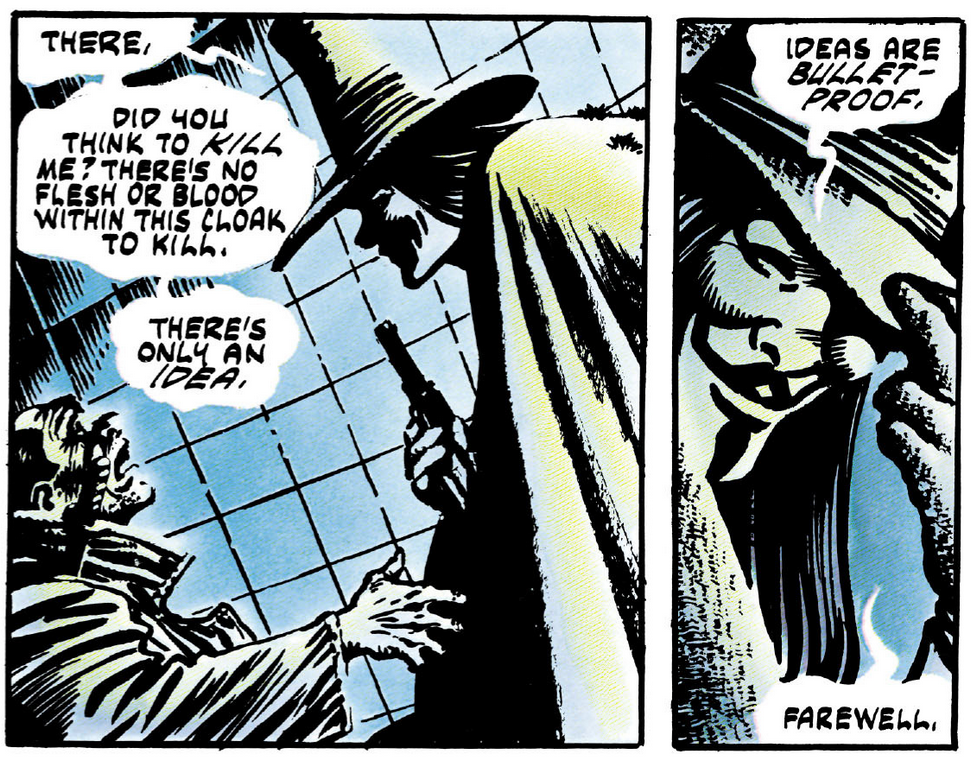
V for Vendetta #9 “Vestices” (1989), DC Comics. Words by Alan Moore, art by David Lloyd, SIobhan Dodds, David Lloyd, Steve Whitaker, and Steve Craddock.
Moore also added, “One of the things I don’t like about film is its incredible immersive quality. It’s kind of bullying — it’s very big, it’s very flashy, it’s got a lot of weight and it throws it around almost to the detriment of the rest of our culture.”
“And I have gotten tired of lazy critics who, when they want to insult a film, they’ll say it has ‘comic book characters’ or a ‘comic book plot’ — using ‘comic book’ as code for ‘illiterate,'” he concluded.
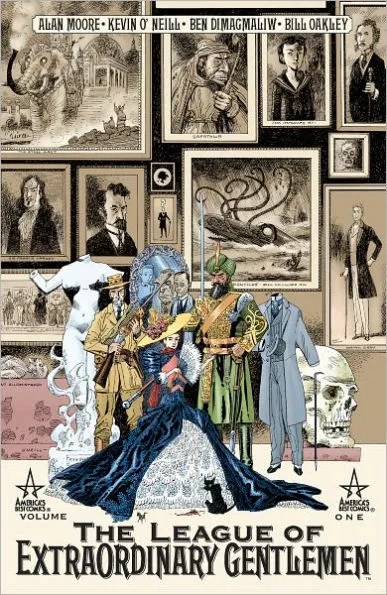
The League of Extraordinary Gentlemen Vol. 1 (2013), DC
Hughes blasted Moore’s position on adaptations of his work telling Josh Horowitz, “I also think that’s part of his mystique he’s building because the truth is, you know, dude, build it in your contract. If you don’t want stuff… If you’re that great of a power in the graphic novel game, you know stop doing that. But it’s what he uses to kid of build his little legacy and mythology behind him.”
Hughes added, “I think it’s bulls**t and its unfair to a lot of filmmakers that do make them and I think it’s not cool that he does that. Put it in your contract that you don’t want it made into a movie. Period. End of story.”
“He is a fantastic writer that is not to be denied,” Hughes admitted.
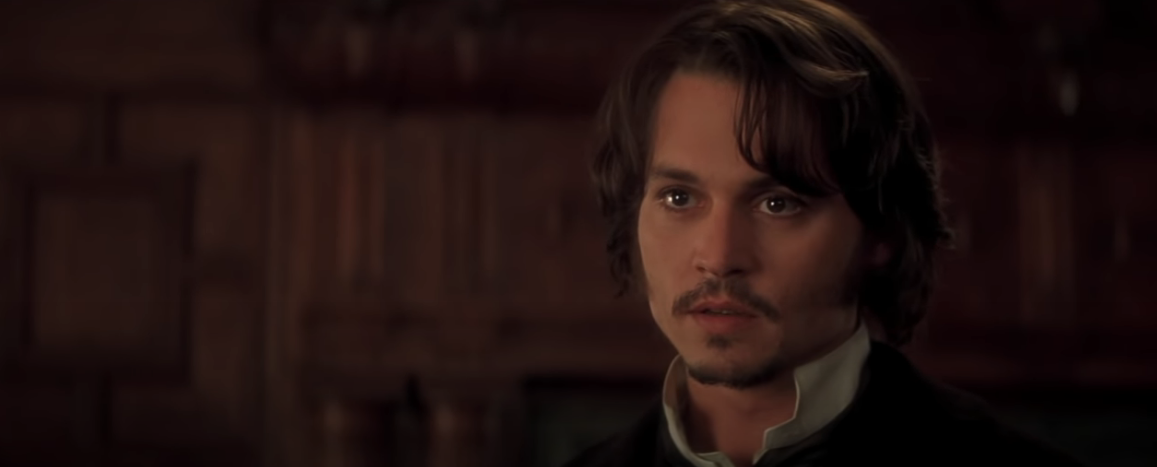
Johnny Depp as Inspector Frederick Abberline in From Hell (2001), 20th Century Fox
Later in the interview, he detailed why they made the creative changes they did in From Hell, “We’re consciously thinking now, again, it’s this race thing. Black filmmaker. What is a black filmmaker going to do? Well, let’s go 180 on them. Let’s just do a normal movie. And it was very calculated, and we did it for a reason.
“We liked it a lot, but then it bounced from there to New Line to Fox in a course of three and a half years… Meanwhile I’m doing all the Jack the Ripper research, reading all the books, watching all the movies not knowing that we’re going to get bounced around in development hell. And by the time we get ready to make it I know about the same as the Ripperologists as they call them … I was pretty well versed … I knew all the up-to-date information.”
“So by the time we got to make it I was able to replicate all the murder locations more accurately then it was done in the past,” he concluded.
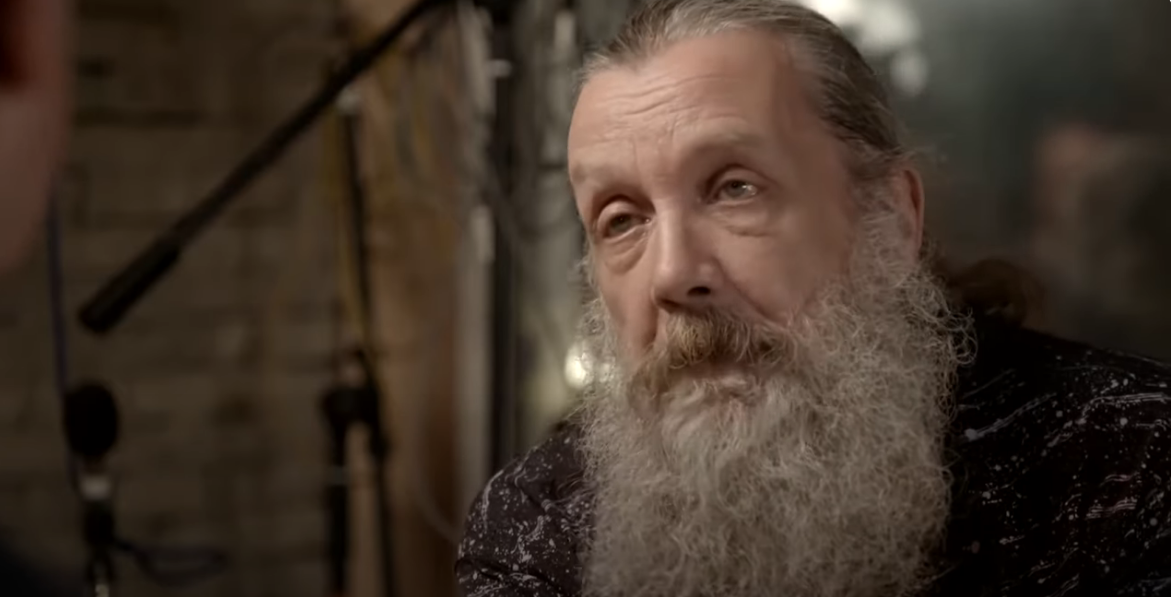
Alan Moore via Piotr Panic YouTube
What do you make of Hughes’ comments about Alan Moore?
NEXT: Prolific Batman Writer Chuck Dixon Describes Alan Moore’s Batman: The Killing Joke As “Misery Porn”
More About:Comic Books Movies
